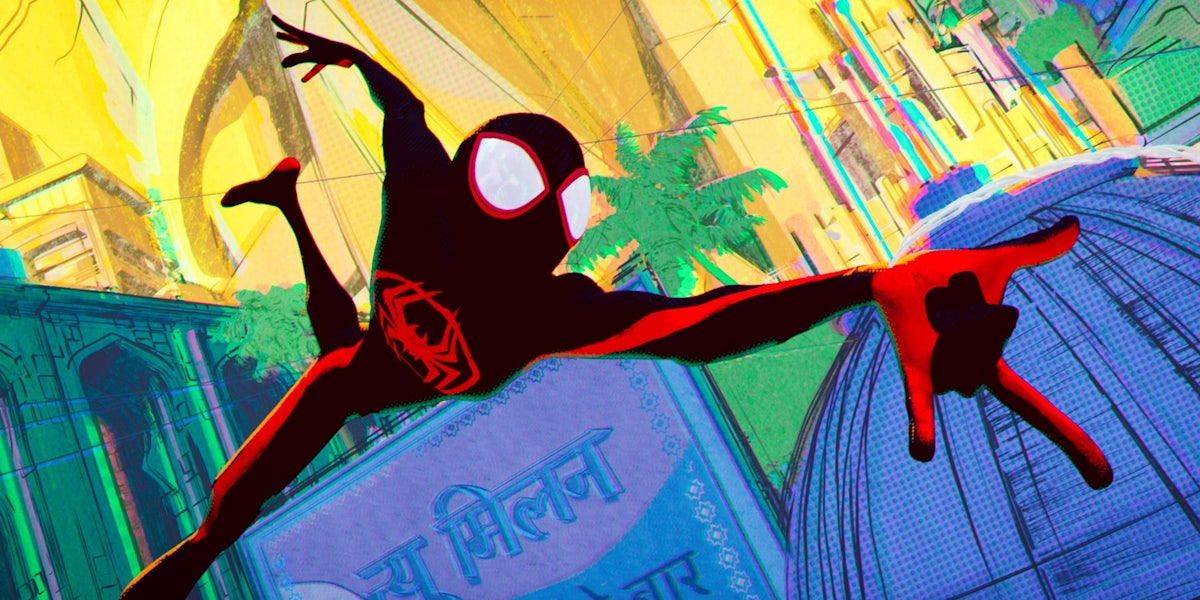Analysis
Superhero cinema is in its multiverse era, with both the MCU and the DCEU embracing multi-timeline crossover events. Compared to the Spider-Verse movies, however, both franchises are hopelessly outgunned. The gulf in quality between Across the Spider-Verse and something like Ant-Man and the Wasp: Quantumania is quite frankly humiliating.
It’s also clear that this brand of multiverse storytelling is already going stale. An ominous sign for the current phase of the MCU, which will culminate in a timeline-hopping showdown against the multiversal villain Kang in 2025.
In superhero comics, parallel timelines are an efficient explanation for the messy state of canon, where long-running characters develop incoherent arcs with wildly divergent backstories and personality traits. This isn’t such a big problem in the movies, where storylines are shorter and simpler, and audiences can easily accept that Ben Affleck and Robert Pattinson’s Batmen are two separate guys.
Following the success of Into the Spider-Verse though, multiverse narratives reached the mainstream—motivated, I suspect, by studio execs realizing this was an easy way to court fandom nostalgia. Spider-Man: No Way Home offered a crossover between three previously-unconnected Spidey franchises. Doctor Strange in the Multiverse of Madness featured a plethora of nerdy cameos including John Krasinski as Mr. Fantastic; a casting choice that felt like Marvel blowing a kiss to redditors. And in a couple of weeks, The Flash will bring Michael Keaton’s Batman into the Henry Cavill/Ben Affleck era of the DCEU.
Like the Spider-Verse franchise, these movies use “the multiverse” to launch crossover team-ups while providing genre-savvy metacommentary on the superhero genre. Are characters like Peter Parker and Miles Morales trapped by their own narrative, doomed to live out a formative trauma in order to become heroes? If they disrupt their own canon to have a happier life, do they cease to have narrative meaning, thus sparking their own destruction?
It goes without saying that the Spider-Verse movies deal with these questions in a more intelligent manner, mostly due to their innovative visual impact. Across the Spider-Verse ups the ante on the idea of different universes and characters having radically different aesthetics, ranging from basic color choices and cartoon styles to the way certain characters are shaped by their “home” genre. Spider-Man Noir isn’t just “vintage,” he thinks and speaks in a totally different way to Miles Morales. Drawn like he’s torn from the pages of a DIY zine, Spider-Punk’s body parts are animated at different frame rates, clashing with both himself and his surroundings.
Put simply, the Spider-Verse creators delve deep into what a multiverse of cartoon superheroes would “really” look like, rather than just telling a sci-fi story about alternate timelines. And while the general themes of the Spider-Verse overlap with movies like Spider-Man: No Way Home and The Flash, there’s another crucial difference: The Spider-Verse remixes Marvel canon into something fresh, whereas its live-action counterparts are stuck in the past. Not just in the literal sense that they resurrect old characters, but in the way they prioritize shallow callbacks over story.
Above all, Into the Spider-Verse made multiple universes look easy. Back in 2018, years before the MCU started the laborious process of introducing Kang and the concept of branching timelines, Into the Spider-Verse smoothly starred an ensemble cast of new characters from different universes. Miles and Gwen and Peter B. Parker were untrammeled by lore. Their roles required minimal explanation. In a film whose key appeal was its sheer artistic quality, the Marvel canon references were fun garnishes rather than load-bearing fanservice.
It feels telling that the weakest scene in Across the Spider-Verse is the moment that seems most like other superhero movies: The exposition sequence where Miguel O’Hara explains the logistics of the multiverse, hanging a lampshade on the idea of certain “canon events” being immutable.
Echoing the worldbuilding behind Disney+’s Loki and Doctor Strange 2, this style of self-aware multiverse storytelling is starting to get old. It now feels like the 2020s version of that blockbuster trend from about 15 years ago, when every movie ended with a giant laser beam zapping into the sky. Decidedly overdone. The Spider-Verse franchise has already provided the definitive version of this trope, and as the MCU struggles to find an interesting take on the same idea, you have to wonder about the fate of Avengers: Kang Dynasty in 2025.
Once again, Hollywood studios have seemingly learned the wrong lesson from a hit movie. Audiences don’t love the Into the Spider-Verse because there’s a widespread hunger for multiverse stories. People enjoy movies that look good and deliver compelling characters. And right now the MCU is struggling to do at least one of those two things.
